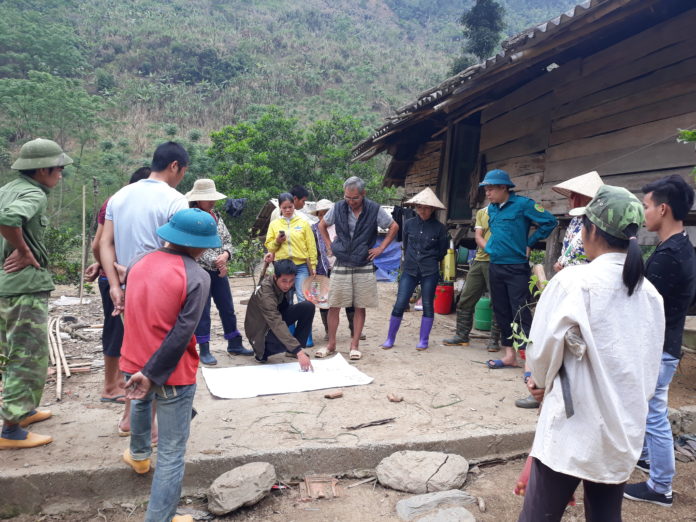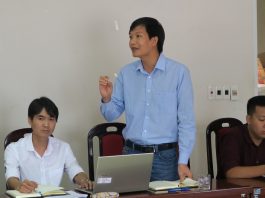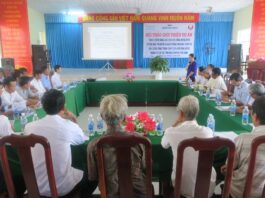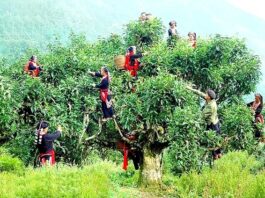State Forest Enterprises (SFEs) were a pillar of post-liberation bureaucracy but have been underperforming since the 1990s. The Government of Vietnam has continued to restructure and dismantle non-performing SFEs, taking ineffectively managed forest lands and reallocating them to local communities to manage and use. In Vietnam’s north-western Hoa Binh Province more than 1,200 hectares of forest land have been handed over to 189 households in just two communes—Cao Son and Tu Ly in Da Bac District—areas where nearly half of the population is poor or near poor, and a full 90 percent are ethnic minorities.
Since 2018, the Center for Research on Initiatives of Community Development (RIC), supported by MRLG, has been working together with local authorities to conduct a transparent and participatory process of land reallocation from SFEs and to develop appropriate policies to support forest land tenure security. The project works together with communities in land use planning and establishing the procedures for developing land reallocation in ways that are equitable and support local development.
The Handbook for the development of land use plans for land areas released from agricultural and forestry enterprises brings together lessons learned from project implementation and serves as a reference tool for local authorities seeking to apply a similar land reallocation process. The guidance includes how to ensure compliance with laws, accountability, transparency and people’s participation.
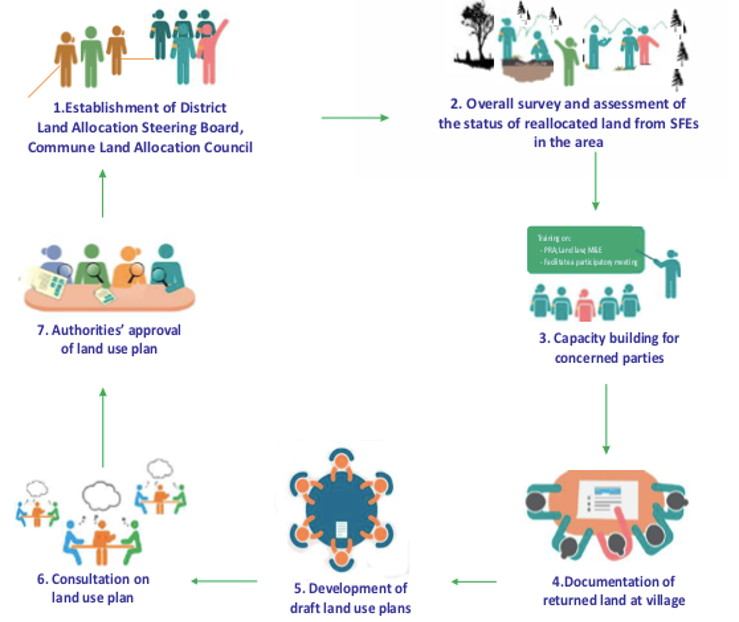
During the process of land reallocation and planning, local people directly participate in surveying and assessing the status of reallocated land from SFEs. The process includes determining the boundaries of the reallocated land areas, identifying criteria for beneficiaries (poverty status, access to land, etc.) and assessing value of the land area to ensure equitable allocation.
This process has been successfully replicated without financial support in Da Bac District. Another commune, Hao Ly, applied the land reallocation procedure in 2018 and 199 hectares were allocated to 80 households for cultivation. This has greatly benefited their livelihoods. Mrs. Trieu Thi Lien, a smallholder farmer and a single mother who was supported by MRLG, explained the benefits for her family. “Initially, I did not have any land to cultivate. After joining the project, I was assigned 0.7 hectares of land. I started with seasonal crops in the first year, which improved the income for my family. Currently, I have been supported by the Cao Son People’s Committee to plant nearly 0.6 hectares of acacia and more than 1,000m2 of grapefruit as well as to intercrop seasonal crops for short–term income while taking care of the perennial crops. I am very happy to receive this land to cultivate and improve our livelihoods.”
Building on these initial successes and lessons learned, RIC is now developing a model for natural protection forest co-management in Sung village, Hoa Binh Province. The model supports the capacities of the ethnic Dao community to co-manage the Da River Protection Forest and improve the value chain of ancient Shan Tuyet tea. This is one of the four pilot models under MRLG’s Vietnam Workstream for Customary Tenure Recognition. The workstream supports the implementation of the 2017 Forestry Law which came into force in January 2019 and includes provisions that favour the customary tenure of forest-dependent communities. Inclusion of these provisions was enabled and supported by the MRLG Phase 1 innovation fund project Cooperation in Providing Information, Critique and Appraisal of the Draft Vietnamese Forestry Law. Implementation of the Forestry Law is one of the targets of the Vietnam Customary Tenure workstream under MRLG Phase 2 to promote the recognition of customary tenure in forestry land areas. (MRLG Newsletter, publised on 16 December, 2020)

